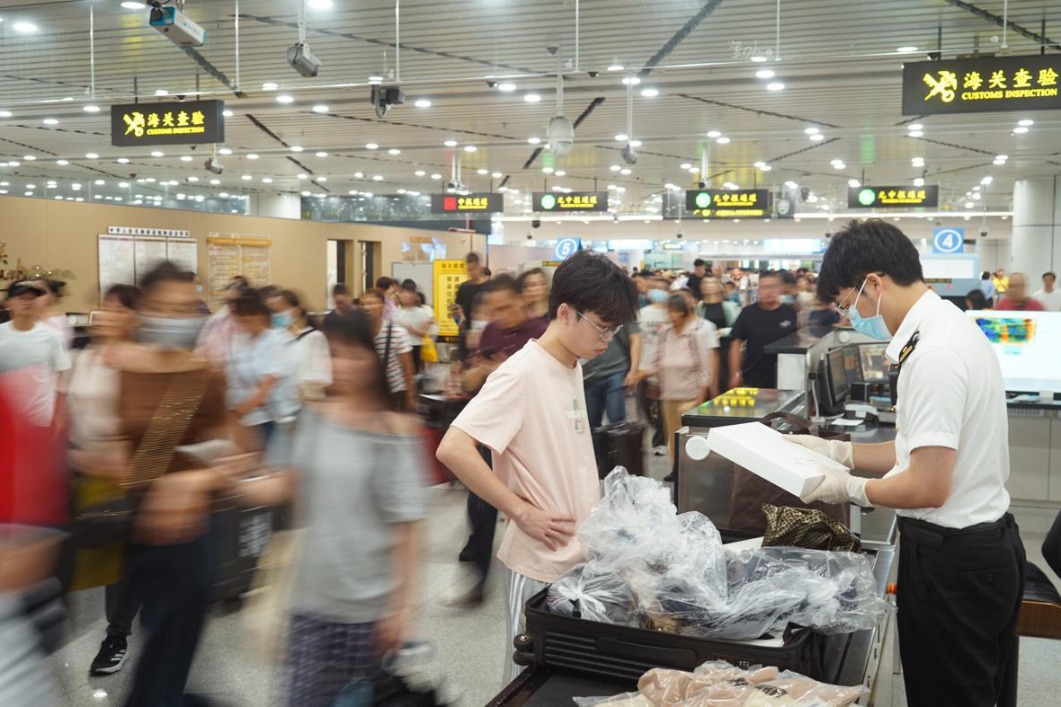Now, Harvard Warns International Students Of Stricter Travel Checks At US Airports, Impacting Journeys To Boston And Major US Destinations, Here's All You Need To Know - Travel And Tour World
Tuesday, July 8, 2025

Harvard University issued a stern warning to its foreign student body regarding extra vigilance at American airports, particularly Boston Logan International, and vigilance in their digital life. The university also cited rising concerns regarding delayed visas, changing immigration policies, and its ongoing lawsuit concerning its ability to accommodate foreign pupils. These are likely to significantly impact international pupils’ travel arrangements and their ability to make classes during the new term.
International students set to travel to the U.S. in the upcoming academic term are being warned to prepare for stricter border checks, particularly at Boston Logan International Airport. Harvard’s International Office warned students that U.S. Customs and Border Protection (CBP) would conduct extra diligent checks on personal belongings including cellphones and laptops and on social media profiles. CBP can confiscate digital devices and may search social media posts, including deleted posts.
The new focus on digital footprints could become an obstacle for students, especially those whose posts link to sensitive political issues. Students have been cautioned against online posts that could be viewed as contentious, provocative, or politically motivated because CBP officers are reportedly paying special attention to these types of posts. This new policy is part of broader developments in U.S. immigration policies that can have a ripple effect on international students’ freedom to move freely into the country.
Among its main concerns is the rising social media vetting trend. Students have been cautioned that CBP could scrutinize their social media profiles before their admission into the U.S. Whether these are reviewed by border officers manually or by use of artificial intelligence is not clear, but the international office of the university made a point that students must understand and remain mindful of what they publish and share online.
These checks go beyond new posts; old posts can also be checked. This can encompass deleted social media posts or messages, especially when these revolve around sensitive issues like political controversy or contentious stands. Students are strongly urged to delete or abstain from any posts that can potentially become inflammatory or disruptive. These Internet checks alongside on-boarding physical checks on personal devices can lead to delays or, in worst scenarios, denial of access.
In addition to border control and social media tracking, foreign students have also been grappling with significant disruptions in U.S. visa issuance. A three-week freeze on visa issuance a couple of months ago compounded travel difficulties for many students determined to arrive before classes began in the fall semester. The disruption to visa issuance lasted for three weeks and sparked a lot of panic among worried students as they sought their visas before classes could begin.
The disruptions have also added one more layer of unpredictability for foreign students. Harvard’s International Office has cautioned students to schedule their visa appointments well ahead of time, no matter if this would cause appointments after their start of studies. In such cases, expedition of visas can sometimes become a prospect, though not always a surety. These disruptions have resulted in a greater number of students choosing to defer their entry or transfer to other colleges as well, further enhancing concerns about studying in the U.S. in this day’s immigration climate.
Another significant issue of concern for international students at Harvard University is its ongoing legal case regarding continued access by foreign students to its campuses. The U.S. Department of Homeland Security (DHS) has gone ahead to rescind permission for Harvard’s certification as a student and exchange visitor program (SEVP), a status that allows the institution to accept F-1 and J-1 visa holders. If its certification as a SEVP expires, Harvard would no longer accept new foreign students on these visas, significantly crippling the institution’s ability to conduct its academic programs for foreign students. Harvard has fought hard against this move through legal action and has been successful in getting interim relief, though the university remains uncertain about a long-term solution. Loss of SEVP certification would not just affect new entrants, but could potentially have a ripple effect on existing students studying at Harvard as well, as their continued presence and studies in the U.S. would become uncertain.
On top of a legal case involving SEVP certification, changes in U.S. immigration policy have compounded a layer of confusion around international students’ travel plans. A presidential proclamation signed last year by former President Donald Trump temporarily blocked F-1 and J-1 visa holders sponsored by Harvard from entering the U.S. This was later overturned by courts, though subsequently appealed by the U.S. government and international students remain in a state of confusion regarding their access to enter the country.
The confusion surrounding issuance of visas and travel restrictions has been one of the chief sources of worry amongst students who are about to travel to America. In the absence of a deadline on when these legal issues would cease, there is no indication on whether or not students would travel to America or face other restrictions and delays.
It would have a dramatic impact on international students if SEVP certification by Harvard is lost. For new arrivals, no longer having access to getting an F-1 or J-1 visa would effectively stop their entry into the U.S. to begin studies. For current students, their visas would no longer be active and could force them to leave from or withdraw from Harvard.
The blow would not just fall on those just entering Harvard; current students can also be affected if their university’s capacity to host foreign students is eliminated. This would disrupt academic plans, cause emotional distress, and possibly force a transfer elsewhere or even a return into their countries of origins.
Harvard University’s warning regarding international students mirrors rising challenges and uncertainties in traveling to the U.S. because immigration policies are changing and security screening has been made more stringent. Additional scrutiny at American airports, and particularly details on social media clearance and search of devices, is another hurdle in front of already frustrated students experiencing delayed visas and risk of losing their SEVP certification. Against this background, foreign students are advised to remain flexible and remain informed about potential changes to U.S. immigration policy. Furthermore, they ought to similarly prepare themselves for probable delays at the border and remain vigilant with their online presence in case of trouble on entry. With legal actions ongoing and the immigration landscape still dynamic, students must remain exceedingly careful as they plan their travel and studies in the U.S.
You may also like...
Diddy's Legal Troubles & Racketeering Trial

Music mogul Sean 'Diddy' Combs was acquitted of sex trafficking and racketeering charges but convicted on transportation...
Thomas Partey Faces Rape & Sexual Assault Charges

Former Arsenal midfielder Thomas Partey has been formally charged with multiple counts of rape and sexual assault by UK ...
Nigeria Universities Changes Admission Policies

JAMB has clarified its admission policies, rectifying a student's status, reiterating the necessity of its Central Admis...
Ghana's Economic Reforms & Gold Sector Initiatives

Ghana is undertaking a comprehensive economic overhaul with President John Dramani Mahama's 24-Hour Economy and Accelera...
WAFCON 2024 African Women's Football Tournament

The 2024 Women's Africa Cup of Nations opened with thrilling matches, seeing Nigeria's Super Falcons secure a dominant 3...
Emergence & Dynamics of Nigeria's ADC Coalition

A new opposition coalition, led by the African Democratic Congress (ADC), is emerging to challenge President Bola Ahmed ...
Demise of Olubadan of Ibadanland
Oba Owolabi Olakulehin, the 43rd Olubadan of Ibadanland, has died at 90, concluding a life of distinguished service in t...
Death of Nigerian Goalkeeping Legend Peter Rufai

Nigerian football mourns the death of legendary Super Eagles goalkeeper Peter Rufai, who passed away at 61. Known as 'Do...




